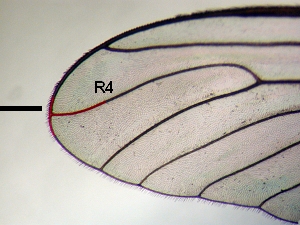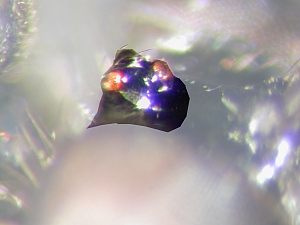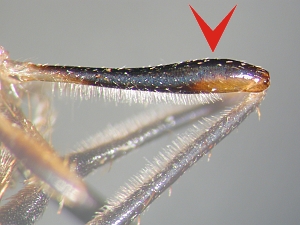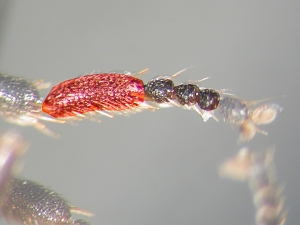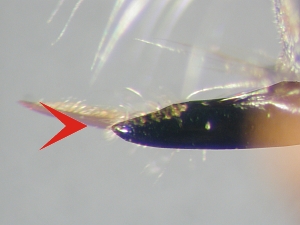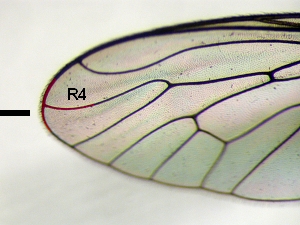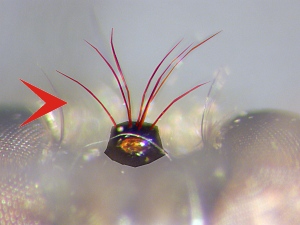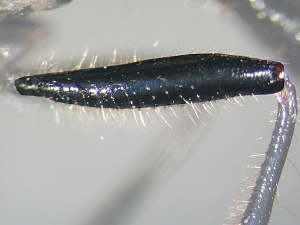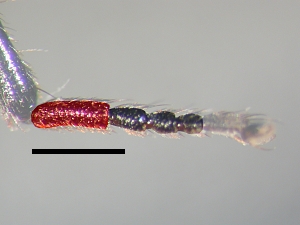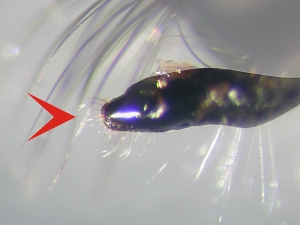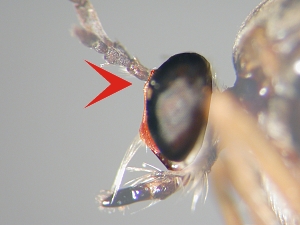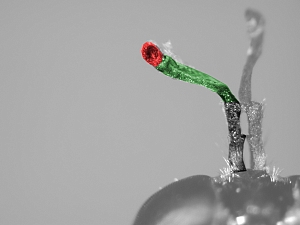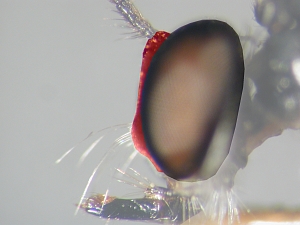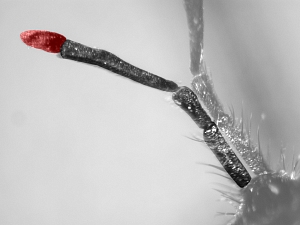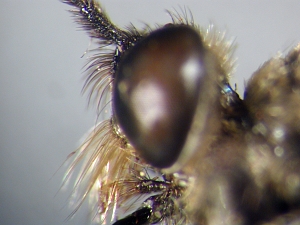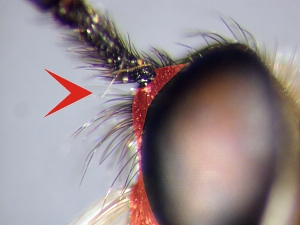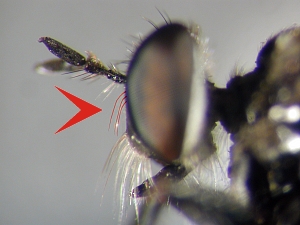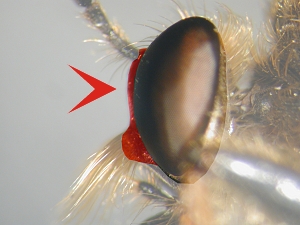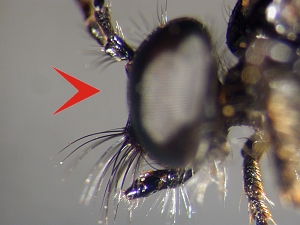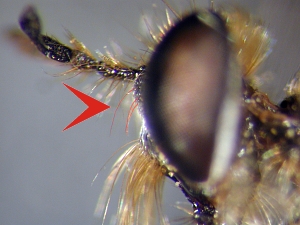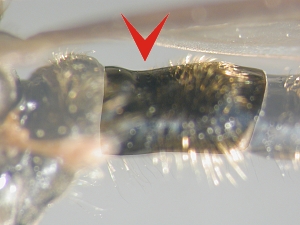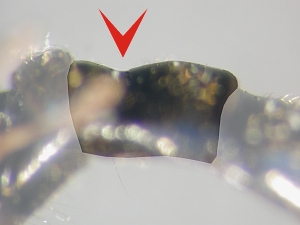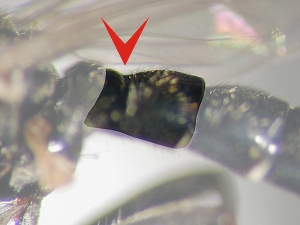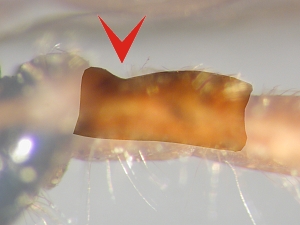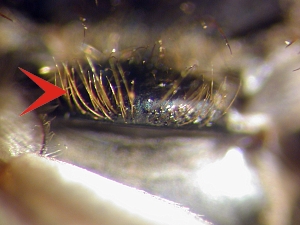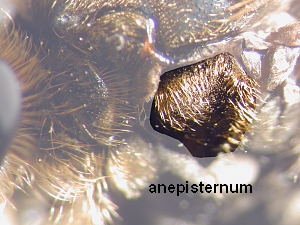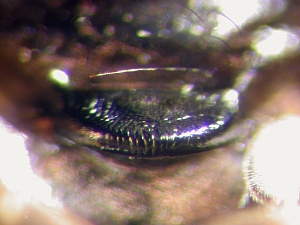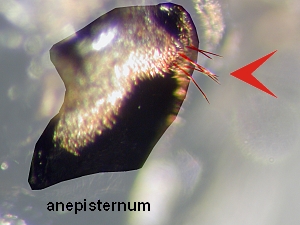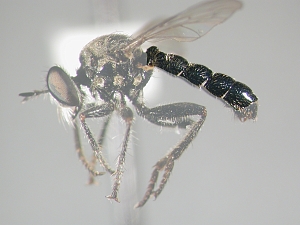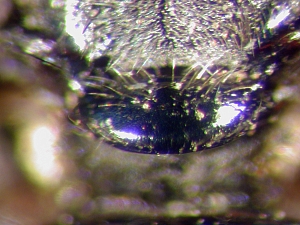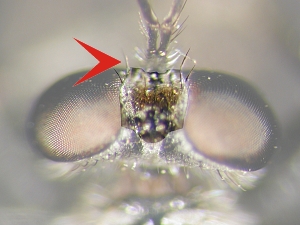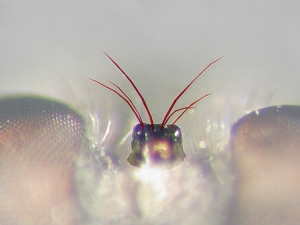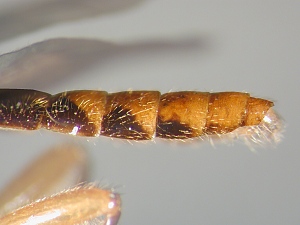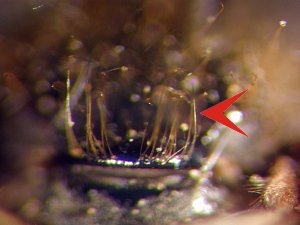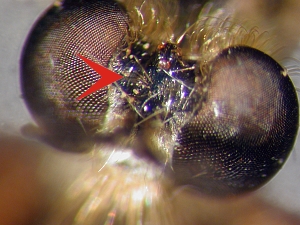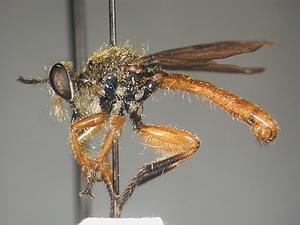Apocleinae
Asilinae
Dasypogoninae
Dioctriinae
Laphriinae
Laphystiinae
Leptogastrinae
Ommatiinae
Stenopogoninae
Stichopogoninae
Trigonomiminae
Dioctriinae
References: Artigas, J.N. & Papavero, N. (1991): The American genera of Asilidae (Diptera): Keys for identification with an atlas of female spermathecae and other morphological details. VII.3. Subfamily Stenopogoninae Hull - Tribes Dioctriini and Echthodopini. - Gayana. Zoologia. Universidad de Concepcion, Instituto Central de Biologia 55(4): 261-266; Concepcion.
Remarks: This key will not run with Palaearctic species of the genus Dioctria, because the variation of characters is higher. The subfamily Dioctriinae is a questionable taxon and a comprehensible diagnosis is lacking.
| Antennal basis not raised on tubercle, hidden behind eye margin in profile. 1st segment of style short and narrow, one-fifth as long as postpedicel, subtruncate or cup-shaped . . . . . Nannodioctria Wilcox & Martin, 1942 | ||
| Antennal basis not raised on tubercle, visible in profile. 1st segment of style long, subequal in width to postpedicel, one-third to one-half as long as postpedicel, more or less board-shaped . . . . . Dioctria Meigen, 1803 |
| Upper half of face and frons prominently swollen, bearing the antennae and a brush of abdundant long hairs below their base; these hairs extending ventrally along lateral margins of face . . . . . Dicolonus Loew, 1866 | ||
| Swelling at antennal base less well-marked or nearly absent; upper part of face either bare or with only a single row of hairs along eye margin (except Metadioctria with a group of hairs below antenna base). |
|
| Scutellar margin with moderately long erect hairs, as long as scutellum, disc of scutellum with appressed short hairs. Anepisternum covered with recumbent hairs . . . . . Echthodopa Loew, 1866 | ||
| Scutellar margin without long hairs, disc of scutellum bare or at most with minute hairs. Anepisternum pilose on upper one-third and along posterior margin . . . . . Eudioctria Wilcox & Martin, 1941 |
| Abdominal tergites strongly arched dorsally, rounded, in cross sections, making abdomen chrysidid-like. Scutellum bare, or with sparse minute hairs. Scutellar margin with very short appressed hairs. Frons and occiput pruinose . . . . . Bohartia Hull, 1958 | ||
| Abdominal tergites flattened dorsally. Scutellum and scutellar margin with long fine hairs. Frons and occiput shining black . . . . . Metadioctria Wilcox & Martin, 1941 |
Contents: © Fritz Geller-Grimm, Jorge N. Artigas, 2007
Layout & images: © Fritz Geller-Grimm, 20075
